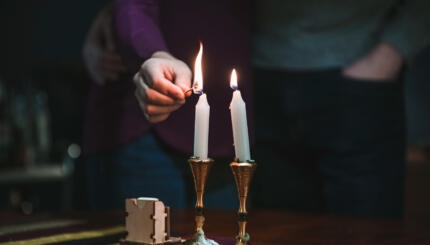The New Year of 5773 is upon us. Rosh Hashanah (the head of the year) is known by several names including Yom HaZikaron (the Day of Remembrance), Yom Teruah (a day of sounding [the shofar]), and Yom HaDin (the Day of Judgement), and Yoma Arikhta (a single long day).
“A single long day.” An odd description for our new year. Is Rosh Hashanah a one-day holiday? Is it a two-day holiday? Or, as the rabbis suggest, is it simply one, very long day?
To better understand why some Jews observe one day of Rosh Hashanah and other festivals while others observe two days, it helps to have a basic understanding of the Jewish calendar. Of course, the word ‘basic’ ought not to be used with such a complex subject as calendrical issues are some of the most difficult to grasp. Perhaps straightforward is a better choice and a very straightforward explanation of why extra festival days are observed may be found here.
At the start of our holy days, it is custom to recite the Shehecheyanu, the blessing that thanks God for enabling us to reach this season. And since the additional day that is added to the beginning of our festivals might actually be the accurate first day (again, please see here for the straightforward explanation), we say that blessing on the second day as well. However, if Rosh Hashanah is really one long day, does the Shehecheyanu need to be recited on the second night? The answer is yes. Sort-of.
Yes, we say the Shehecheyanu on the second night of Rosh Hashanah. But because the Rabbis regarded the two days as one continuous day, and they didn’t like to waste blessings, the custom arose of either eating a new fruit or wearing new clothing on the second day — both experiences that require the recitation of the Shehecheyanu.
So today, may you enjoy the sweetness of a fruit new to you or new for this season. May you enjoy your new shul clothes. And may this one, very long day be filled with awe as we enter this new year.
Rosh Hashanah
Pronounced: roshe hah-SHAH-nah, also roshe ha-shah-NAH, Origin: Hebrew, the Jewish new year.
shul
Pronounced: shool (oo as in cool), Origin: Yiddish, synagogue.


